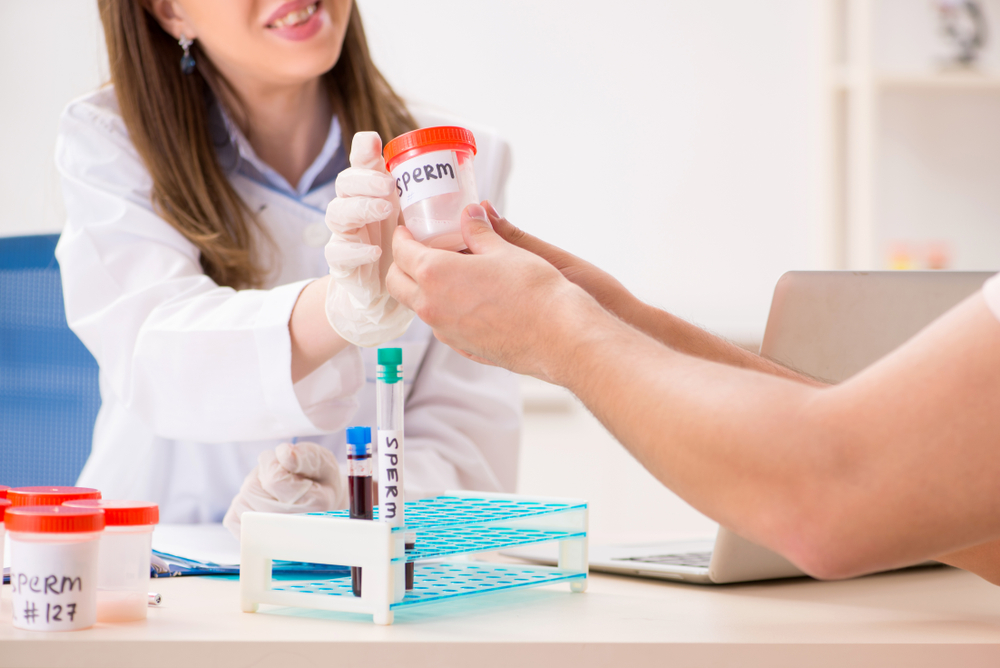What is Included in a Male Fertility Test?

Approximately one third of all infertility cases are due to male fertility factors. Low sperm count, sperm abnormalities, hormonal imbalances, or problems related to reproductive anatomy are just a few of the conditions that male fertility tests check for. Health and lifestyle factors, such as stress, weight, and drug and alcohol consumption can also affect a male’s fertility status.
If you are a male and are concerned about possibly facing a diagnosis of infertility, you should consider obtaining a fertility workup. Knowing the facts about your reproductive and overall health will eliminate any unknowns about your fertility status and help you successfully build a family.
Male fertility tests includes three essential components – a history and physical examination, a semen analysis, and hormone blood testing. A thorough medical history conducted by your physician will identify risk factors or behavior patterns that could impact your fertility. Your physician will ask questions about your family and surgical history and review any medications, allergies, and lifestyle exposures. You may also undergo a physical exam that might include a general examination of your genital area and a prostate exam. A semen analysis will reveal if you have an issue with sperm production or sperm quality, Lastly, blood levels of specific hormones in your body can further elucidate your fertility status. Hormones measured may include follicle stimulating hormone (FSH), lutenizing hormone (LH), total testosterone, and estradiol (E2).
Obtaining a fertility test will impact the choices you make about how to build a family, particularly if you need to use assisted reproductive technology. Abnormalities revealed in a fertility workup can serve as an indicator of other health issues. For example, a low testosterone level may not only indicate low levels of sperm production, but also infection, injury, cancer, or a metabolic disorder. If you learn that you have a certain health condition before you begin your family building journey, you can address it and eliminate it as a potential complication. Sperm banking, for example, can be employed to preserve sperm prior to sterilization or genetic damage that may result from chemotherapy in the case of cancer. Resolving a health issue first will, ideally, reduce conception time once you begin trying to build a family.
If a fertility test reveals an issue with sperm production or quality, there are a variety of treatments to consider to successfully build a family. If you learn that you have a low concentration of sperm, you can, fortunately, address this issue by having your partner undergo Intrauterine Insemination (IUI), a procedure that involves washing and concentrating the sperm and then placing the specimen directly into a woman’s uterus using a thin catheter. In cases of very low counts, a single sperm is injected into the egg in a procedure called Intracytoplasmic Sperm Injection (ICSI). Even if there are no sperm in the ejaculate, sperm can be retrieved directly from the testicle using a procedure called Testicular Sperm Aspirations/Extraction (TESA/E) and then injected into the egg. All of these procedures can help you achieve success when building a family despite having male factor infertility.
Ultimately, undergoing an initial fertility test will eliminate any unknowns you have about your fertility status. Learning about your reproductive and overall health through a male fertility test will help you make decisions that maximize the success of future treatments and your family building journey. Your doctor will play a key role in analyzing your results and working with you to decide the best course of action to create your family.
